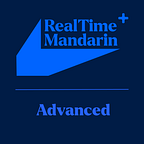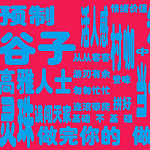Welcome to RealTime Mandarin—a multimedia resource to immerse you in the latest Chinese language trends, inspire you to practice and improve your Mandarin every week, and empower you to communicate with confidence.
Subscribe now to get the next issue straight to your inbox!
Some people in China are still working from home due to covid lockdowns imposed weeks or even months ago.
So there’s been an explosion of articles on management and business blogs with tips on effective remote working.
One big theme is how to avoid your boss thinking your are slacking off, or feeling fish on the job, (36Kr):
有些领导生怕员工在家摸鱼,于是开始要求员工写日报、半日报、小时报,甚至还有公司要求安装监控软件,员工的一举一动都被摄像头看得一清二楚,而且只有在屏幕前工作满9小时,才算完成一天的工时
Some leaders are concerned that employees are slacking off at home, so they demand employees write daily, twice-daily, even hourly reports on their work. Some companies even require the installation of monitoring software, expecting employees to be in front of their screen for nine hours.
Some managers in China are turning to American corporate wisdom for solutions:
《哈佛学不到的经营策略》的作者马克·麦考梅克曾经说:“谁经常向我汇报工作,谁就在努力工作。相反,谁不经常汇报工作,谁就没有努力工作。”有人认为这句话过于武断。然而,我们通过总结许多企业的管理问题,发现了其中的共性:多数时间内下属的汇报少于上司的期望。
In his book, What They Don't Teach You at Harvard Business School, Mark McCormack says: ‘Those who work hard regularly report to me. In contrast, anyone who does not regularly report to me is not working hard enough’. Some people may say this is too arbitrary. But the conclusion drawn from analysing the management problems of many companies shows there is a commonality: a lot of the time, management’s expectations for internal reporting are not met.
So this week we explore online discussions about working from home in China, how to ‘manage up’, avoid a nagging boss and get stuff done.
The Favourite Five

1. 摸鱼 mō yú
feeling fish; slacking off at work
让员工能够提高在家办公的效率,正确“向上管理”,同时也让老板打消员工在“摸鱼”的疑虑 - Employees can increase productivity working from home, correctly ‘managing up’, and remove their boss’s concerns about them being at home slacking off.
Note: We explored the background of the phrase feeling fish in last week’s SupChina phrase of the week.
2. 凝聚力 níng jù lì
team cohesion
长期下去更会影响到企业的内部凝聚力 - In the long-term this will affect the team cohesion of the business.
Note: in American management speak this is also known as ‘stickiness’.
3. 甩手掌柜 shuǎi shǒu zhǎng guì
an arm-flinging shopkeeper; hands-off management
淡化管理过程,不代表管理者就可以当“甩手掌柜”,等着员工呈现完美的工作成果 - Simplifying the management process does not mean the managers can be totally hands-off waiting for their employees to produce a perfect work output.
4. 钻牛角尖 zuān niú jiǎo jiān
drilling the tip of a cow horn; think too hard about solving an unimportant problem
部分员工会怯于提出问题,选择自己在一个问题上钻牛角尖 - Some employees are too afraid to raise questions; they would rather think way too hard about it and over-complicate the issue.
Note: a modern(-ish) idiom popularised by Lǎo Shě 老舍 (1899–1966) in his play, Magical Boxers 神拳 shén quán, published in 1960. Similar in meaning to the idiom, splitting hairs, in English.
5. 一亩三分地 yī mǔ sān fēn dì
one’s own place
但是耕好了自己的一亩三分地,也不代表老板能够穿透物理世界的墙 - Just because the manager has established their own influence within the team, doesn’t mean they can penetrate walls in the physical world.
Background: as a way to engage with peasants, and ‘understand’ the seasons of farming, emperors during the Qing Dynasty had a small patch of ground within the Zhōngnánhǎi which they would personally farm. It was 1.3 mu in area, which in Chinese is 一亩三分地 yī mǔ sān fēn dì. Over the centuries this phrase has come to mean ‘one’s own patch’ or area of influence; it also can also mean selfish or small-minded.
Consuming the conversation

Words
Some basics:
通勤 tōng qín - commute
跑腿 pǎo tuǐ - ‘running legs’, graft or hard work, or running errand
饱和 bǎo hé - at full capacity
打卡 dǎ kǎ - check in; log in at work (this also means to take and share a selfie in a tourist hot spot).
Now, here are some more challenging words about being hassled or getting stuck at work.
烦躁 fán zào
irritable
极大影响了工作的沟通成本与推进效率,也加剧了各自的焦虑与烦躁感 - It had a huge impact on the cost of communicating internally and efficiency of progressing things. It’s also exacerbated the concerns and irritations of everybody.
烦心 fán xīn
upset, annoyed
员工烦心居家办公的一个重要原因,在于工作无法像线下一样与同事们保持同频 - One of the main reasons why people get frustrated with working from home is that, unlike being based in the office, it’s really hard to keep on the same page with colleagues.
滑坡 huá pō
landslide; fall or go down
这都会带来在家上班时效率的滑坡 - This will cause people’s work efficiency to drop.
卡壳 kǎ ké
stuck
如果怯于沟通,一旦卡壳起来,开始一个人的内耗 - If people are not willing to communicate, and they get stuck, this will cause burn-out.
桎梏 zhì gù
shackles
脱离时空桎梏的混合办公固然带来了极大的灵活性 - Removing the shackles of time and place, hybrid working has of course brought with it much greater flexibility.













